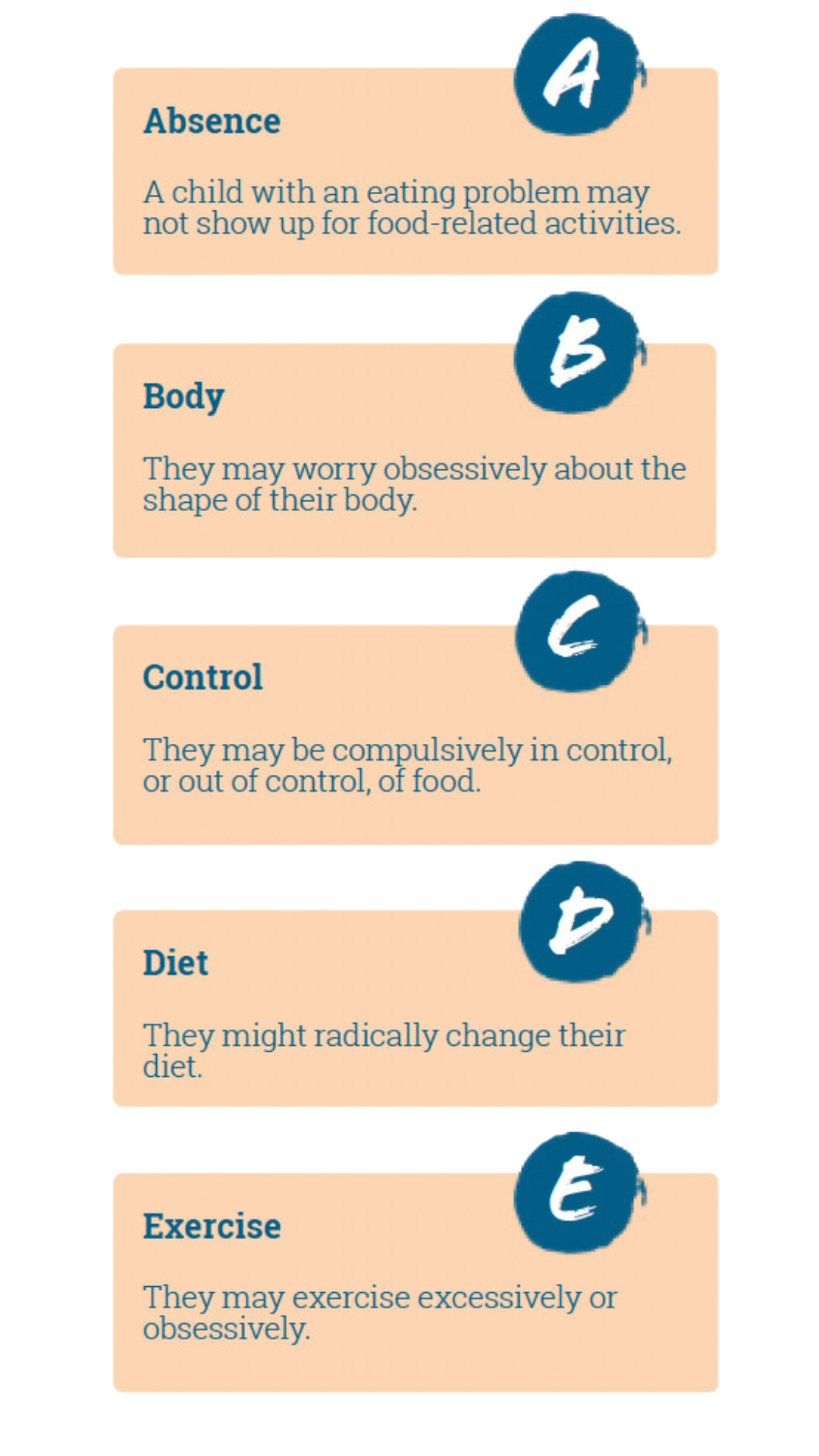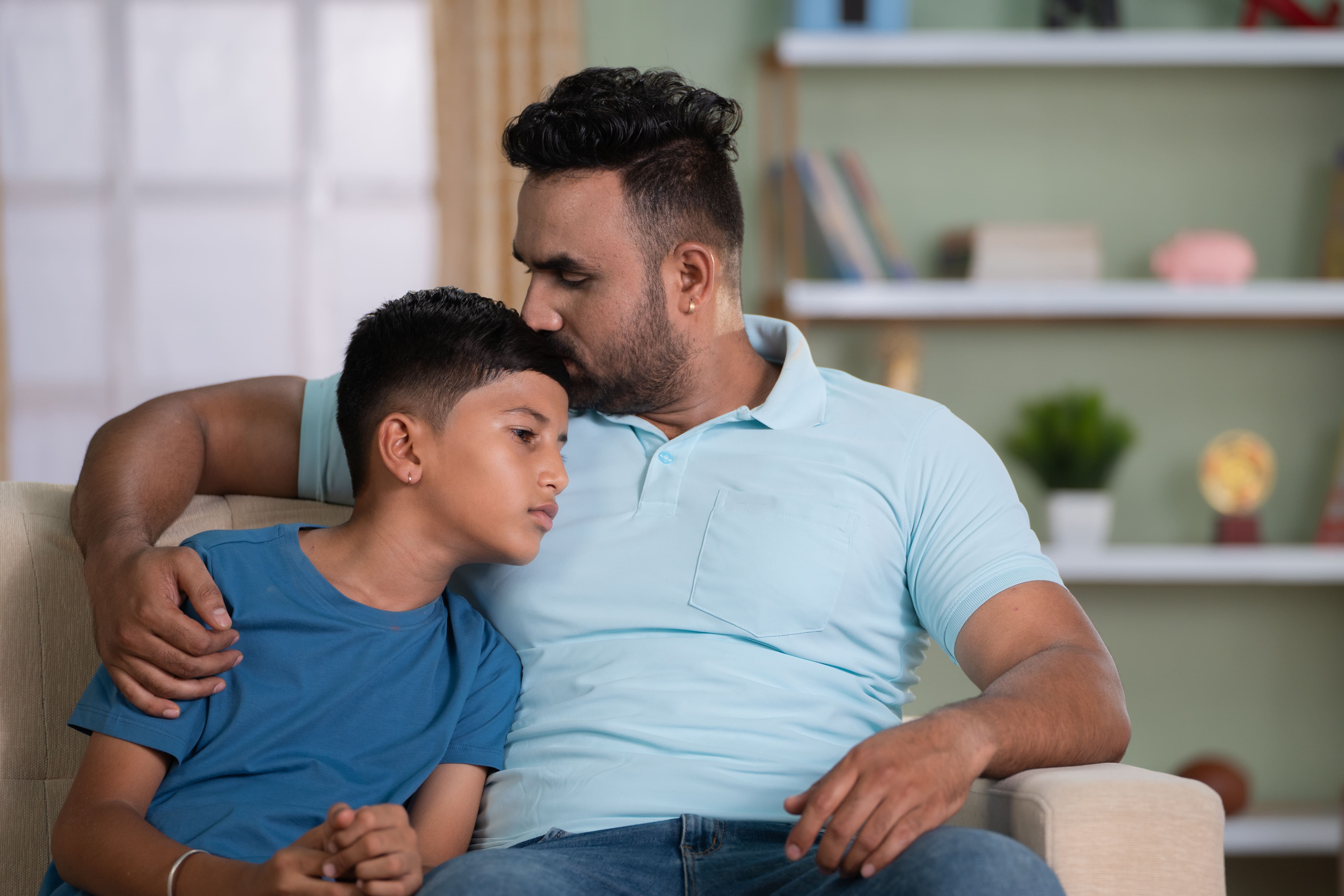Supporting a child with an eating problem

Supporting a child with an eating problem
Guidance for parents and carers
If your child is experiencing difficulties with eating or has been diagnosed with an eating disorder, it can be worrying, isolating and distressing for you as a parent or carer.
Here you’ll find knowledge and skills to support your child from expert mental health trainers, Jenny Langley and Ros Rea. We hope it reassures you that you are not alone and gives you hope that people do recover from an eating disorder.
If you would find it helpful to have this information in a booklet, you can download it as a pdf or order a hard copy.
Download supporting a child with an eating problem
Order a hard copy of supporting a child with an eating problem
Understanding eating problems
What does an eating problem look like?
Eating problems can have many physical and psychological signs, for example:
Behavioural - Eating too little or too much, exercising excessively, counting calories, being irritable, angry, tearful or anxious. Avoiding social situations, withdrawing, socially isolating or being secretive around food or meals.
Physical - Rapid weight loss, no energy, difficulty sleeping, low heart rate and/or blood pressure, dizziness or fainting, palpitations, dental erosion, changes in menstrual cycle.
Cognitive - Struggling to concentrate: brain function is affected which impacts on attention, memory and processing information.
Psychological - Feeling your self-worth and self-esteem depend on body shape and weight, being rule-driven, feeling out of control.
Nine truths about eating disorders
It can be difficult to understand why people develop an eating disorder. Although we don’t fully understand what causes them, there can be biological, genetic, psychological, behavioural and social-cultural factors.
We do know that eating disorders are often about feelings which can adversely affect food intake. They may also be a way of coping with feeling out of control.
- Many people with eating disorders look healthy yet may be extremely ill.
- Families are not to blame and can be the person’s best support in recovery.
- An eating disorder diagnosis is a health crisis that disrupts personal and family functioning.
- Eating disorders are not choices, but serious biologically influenced illnesses.
- Eating disorders affect people of all genders, ages, races, ethnicities, body shapes and weights, sexual orientations and socioeconomic status.
- Eating disorders carry an increased risk for both suicide and medical complications.
- Genes and environment play important roles in the development of eating disorders.
- Genes alone do not predict who will develop eating disorders.
- Full recovery from an eating disorder is possible. Early detection and intervention are important.
The ‘Nine Truths’ were produced by the Academy for Eating Disorders in collaboration with Dr Cynthia Bulik PhD, FAED, Distinguished Professor of Eating Disorders in the School of Medicine at the University of North Carolina at Chapel Hill.
What are the main types of eating disorder?
- Anorexia nervosa - Severely limiting food and drink, preoccupation with weight and shape, fear of weight gain. Distorted body image (body dysmorphia(. Increased activity, exercise, purging, use of laxatives and/or diuretics.
- Bulimia nervosa - Eating large amounts of food (bingeing) then compensating through purging, increased or excessive exercising, vomiting, using laxatives and/or diuretics or fasting.
- Binge eating disorder - Eating large amounts of food (bingeing) but no purging, accompanies by feeling unable to stop eating even when full.
- Avoidant restrictive food intake disorder (AFRID) - avoiding certain types of food. This can be due to sensory issues, fear of what might happen or low interest in eating, common in people with autism.
- Other specified feeding or eating disorder (OSFED) - Eating difficulties that cause significant distress, but do not fit the expected symptoms of another eating disorder. Signs might include secretive behaviour around food, low confidence, poor body image, mood swings, social withdrawal, feelings of shame or anxiety.
How to spot signs of an eating problem
There are often signs that your child may have an eating problem.
Spot the signs using the ABCDE framework:
Absence: A child with an eating problem may not show up for food-related activities.
Body: They may worry obsessively about the shape of their body.
Control: They may be compulsively in control, or out of control, of food.
Diet: They might radically change their diet.
Exercise: They may exercise excessively or obsessively.
Pollard NJ. (2019) The ABCDE tool for spotting the early signs of an eating disorder. The Family Files (FamilyMentalWealth.com), Issue 4
The impact of eating disorders
Eating disorders can have a significant impact on day-to-day life – both for the person with the eating disorder and for their parents, carers, siblings and other family members.
If your loved one is starved, this can have a physical impact upon their brain. Their memory, concentration and ability to process things change as the white matter, the part of the brain that helps the body process information, shrinks.
Eating disorders can have a significant impact, both physically and psychologically. If physical risk is a concern, medical monitoring is essential, please seek medical help immediately via your GP, A&E, or 111. Trust your instincts as a parent or carer and act on them.

You should have your loved one assessed urgently if they show any of the following:
- Very low weight: percentage median Body Mass Index less than 70% (approx. below 0.4th BMI centile). Check with a GP or eating disorders service for an accurate measurement.
- Recent loss of 1kg or more for two consecutive weeks in an undernourished person.
- Rapid weight loss in someone of any weight.
- Little or no nutrition for over five days.
- Acute food refusal or less than 500kcals a day for more than two days.
- Physical struggles with carers over nutrition.
- Fluid refusal or signs of dehydration.
- Heart rate below 40 beats per minute.
- Core temperature below 35 C.
- Excessive exercise (more than two hours a day).
- Daily purging.
- Self-harm.
- Thoughts of suicide and/or intent to act on these thoughts.
This list was produced by the Royal College of Psychiatrists; Medical emergencies in eating disorders (MEED): Guidance on recognition and management (CR233), rcpsych.ac.uk
Practical ideas for your child
Help them spot the signs of an eating disorder
Helping your child to recognise that they may have an eating disorder can be difficult: some young people find it hard to see. You could explain that the way eating disorders present themselves and how people experience them can vary hugely from person to person; and they may be different from what your child has seen or read about.
Your child may not want to tell anyone about their eating difficulties as they may feel that they are not serious enough. They may be feeling guilty, embarrassed or ashamed. Acknowledge and validate their concerns, take them seriously, and discuss how you can help them right now

Talk openly
You could ask them: “What thoughts and feelings are you experiencing, how are these affecting your eating right now? How long do you feel you’ve been trying to manage these difficulties? How can I support you?” Try to acknowledge how brave they have been in talking and how difficult it seems for them right now. Reassure them that together you will get through this.
Validate their emotions
Even when we don’t understand our loved one’s behaviours or emotional responses, it is so important to acknowledge how they are feeling, as that is their reality. “What you’re going through right now sounds really tough, I can understand why you might be feeling...”(use their words to reflect this back). Try not to ‘fix’ the issues, just validate their feelings.
Practical ideas for you
Remember, as well as ideas to support your child you should also think about how you can support yourself. If you’re exhausted, you can’t be as effective when caring for your loved one.
Take time out for yourself
Make sure you have your own ‘time out' and find ways to relax, laugh, get out in the fresh air, or whatever works for you.
Use your support network
When friends or family offer help, accept it graciously and give them a specific task. Often people want to help but don’t know how, so have a list of jobs in mind that you can dish out to willing helpers.
By looking after yourself, you are role modelling that self-care is very important and that there is more to life than the eating disorder.
Often carers of loved ones with an eating disorder feel they always have to ‘get it right’. It’s really important to remember to be as compassionate to yourself as you would be to others. You’re not always going to say the right thing and sometimes all your strategies to keep calm will go out of the window. When things are calmer, go back and talk about what happened and think about how the situation could be managed if it happens again.
When your loved one has an eating disorder you are balancing physical and emotional risk. If it is safe, patience is key to coming alongside your loved one and waiting for them to feel able to move forward. It is really important to reinforce positive things and experiences – look for those ‘green shoots,’ new growth or changes – this will also help you as a parent or carer to hold on to hope.
Don’t suffer in silence
Find someone to talk to – a trusted friend or family member, or a local support group, or a call or message to a support line can help. Talking openly and confidentially will ease your burden of worry and help you see what you can do to make things better.
Celebrate small successes
Try to remember that the battles your child experiences, and the successes they achieve in their recovery journey, may not be visible but they are still very real to them. Seeing your child sat at the dinner table but not eating may seem to be a failure but they will have fought and won many battles in their own mind just to agree to come to the table and be present. Acknowledge the steps they take in their internal battles, even if they are not visible to you.
For more practical ideas to support you and your child, download our free resource below.
Download supporting a child with an eating problem

Golden guidelines for carers
- Remember your loved one is ill.
- Look after yourself first.
- Remember that the eating disorder has a purpose – perhaps offering a sense of control or identity.
- Try not to focus all your attention on the eating disorder behaviours.
- Don’t try to ‘fix’ your loved one.
- Support your loved one.
Read more at New Maudsley Carers
What can you do ‘in the moment’?

It can feel really tough to stay supportive when your loved one has an eating problem.
Here are some things which parents and carers find useful:
- Offer lots of affirmation and validate their feelings where you can.
- Try to stay calm and acknowledge the difficulties.
- Use language that is supportive: “I can see that you’re…”
- Give more attention to the behaviours you like and less attention to those you don’t like.
Healthy coping ideas for supporting children and young people
Think together about the kind of things that help your child feel better when they are feeling bored, lonely, angry, stressed or tired. Then when they feel the urge to use unhealthy behaviours, you can try and work out together what emotions might be causing them and use positive distractions.
The BLAST acronym below may offer some helpful suggestions for you to think about alongside your loved one. Focus on things you can relate to and would work for you:
- Bored: A change of scenery can help. Go outside if you can, or even a different room can spark inspiration for something to do.
- Lonely: Contact a friend or family member who helps you to feel connected.
- Angry: Writing down your frustrations can be a helpful way to identify where they are coming from.
- Stressed: Sometimes when things become overwhelming, a to do list can help. If that’s too much, choose one achievable task and try to complete it.
- Tired: If your body isn’t fuelled you’re going to feel tired. Take things easy and watch a movie or series on TV.
What other parents have said
- Try to keep family routines as normal as possible. This can be especially helpful for siblings or others in the household.
- Spend as much time as possible doing fun family activities, games or other distractions, rather than always being sucked into endless discussions or arguments around food, weight or shape.
- Separate your child from the eating disorder. It can seem all-consuming but your child is still in there.
- Always make sure they feel loved and supported – tell them, show them, hug them.
- A weekly family meeting helps us. We talk about our feelings, plan meals and generally check up on each other.
Free skills workshops for parents and carers
Workshops for anyone caring for a loved one with an eating disorder.
The Charlie Waller Trust runs a series of online workshops for parents and carers supporting a loved one with an eating disorder. The five-week course consists of a weekly two-hour workshop full of practical tips, real life scenarios and case studies. It is delivered by trained facilitators.
The course is based on the New Maudsley Approach, which aims to lower anxiety and distress in family members. It gives carers communication tools, skills and techniques that help them engage their loved one to improve their self-esteem and develop the resilience to embark on change.
As well as giving carers skills to engage their loved ones, the workshops encourage carers to look after their own physical and psychological needs. Connecting with other carers can be very beneficial too, helping you know you are not alone.
The New Maudsley Approach can help people of all ages, whether they are neurodiverse or neurotypical, and no matter what their eating problem.
When I joined, I immediately felt I had found a safe place, filled with people who understood everything I said.
Looking for further help?
Here are some organisations which offer direct advice and support.
BEAT EATING DISORDERS
Call: England 0808 801 0677
Scotland 0808 801 0432
Wales 0808 801 0433
Northern Ireland 0808 801 0434
Online: beateatingdisorders.org.uk
Information and support for anybody
affected by eating disorders. Includes a
support hub for carers with resources,
learning and forums, plus peer support and
online development.
FIRST STEPS
Wide range of support services for children
and their families, young people and adults
affected by eating difficulties and disorders,
including befriending services.
HUB OF HOPE
Online: hubofhope.co.uk
A comprehensive directory of mental health
support and services local to you based on
your postcode.
PLACE NETWORK
Online: charliewaller.org/place-parent-support
A network of local projects and groups who
are either interested in or are offering peer
support for parents and carers.
SAMARITANS
Call: 116 123
Online: samaritans.org
Confidential and emotional support 24/7
if you’re having a difficult time or worried
about someone else. Self-help app and
webchat available via website.
YOUNGMINDS PARENTS HELPLINE
Call: 0808 802 5544
Online: youngminds.org.uk
Parents helpline support with detailed
advice, emotional support and signposting
about a child or young person up to the age
of 25.
Further reading for parents and carers
FAMILY MENTAL WEALTH
Online: familymentalwealth.com
Parent/carer toolkit with short videos to help
support children’s mental health, along with
resources for schools which help students
spot the signs of an eating problem.
NEW MAUDSLEY CARERS
Online: newmaudsleycarers-kent.co.uk
Practical tips and resources including
worksheets, videos and podcasts.
PEACE (PATHWAY FOR EATING
DISORDERS AND AUTISM DEVELOPED
FROM CLINICAL EXPERIENCE)
Online: peacepathway.org
Articles and downloadable resources for autistic people with eating disorders.
Recommended books
- Skills based learning for caring for a loved one with an eating disorder: The New Maudsley Method. Treasure, J., Smith, G., & Crane, A. (2016).
- Caring for a Loved One with an Eating Disorder: The New Maudsley Skills Based Training Manual. Langley, J., Todd, G., & Treasure, J. (2019).
- How to help someone with an eating disorder – A practical Handbook. Pam Macdonald (2021).
- Getting better bite by bite: A survival kit for sufferers of bulimia nervosa and binge eating disorders. Treasure, J., Schmidt, U., (2015).
- Supporting Autistic People with Eating Disorders: A guide to adapting treatment and supporting recovery. Tchanturia, K. (2021)
Resources
Was this article helpful?
Your feedback helps us create better content so if this article helped, please leave a like below and let others know.
The Charlie Waller Trust
The Charlie Waller Trust is a registered charity in England and Wales 1109984. A company limited by guarantee. Registered company in England and Wales 5447902. Registered address: The Charlie Waller Trust, First Floor, 23 Kingfisher Court, Newbury, Berkshire, RG14 5SJ.
Copyright © 2024 The Charlie Waller Trust. All rights reserved.




